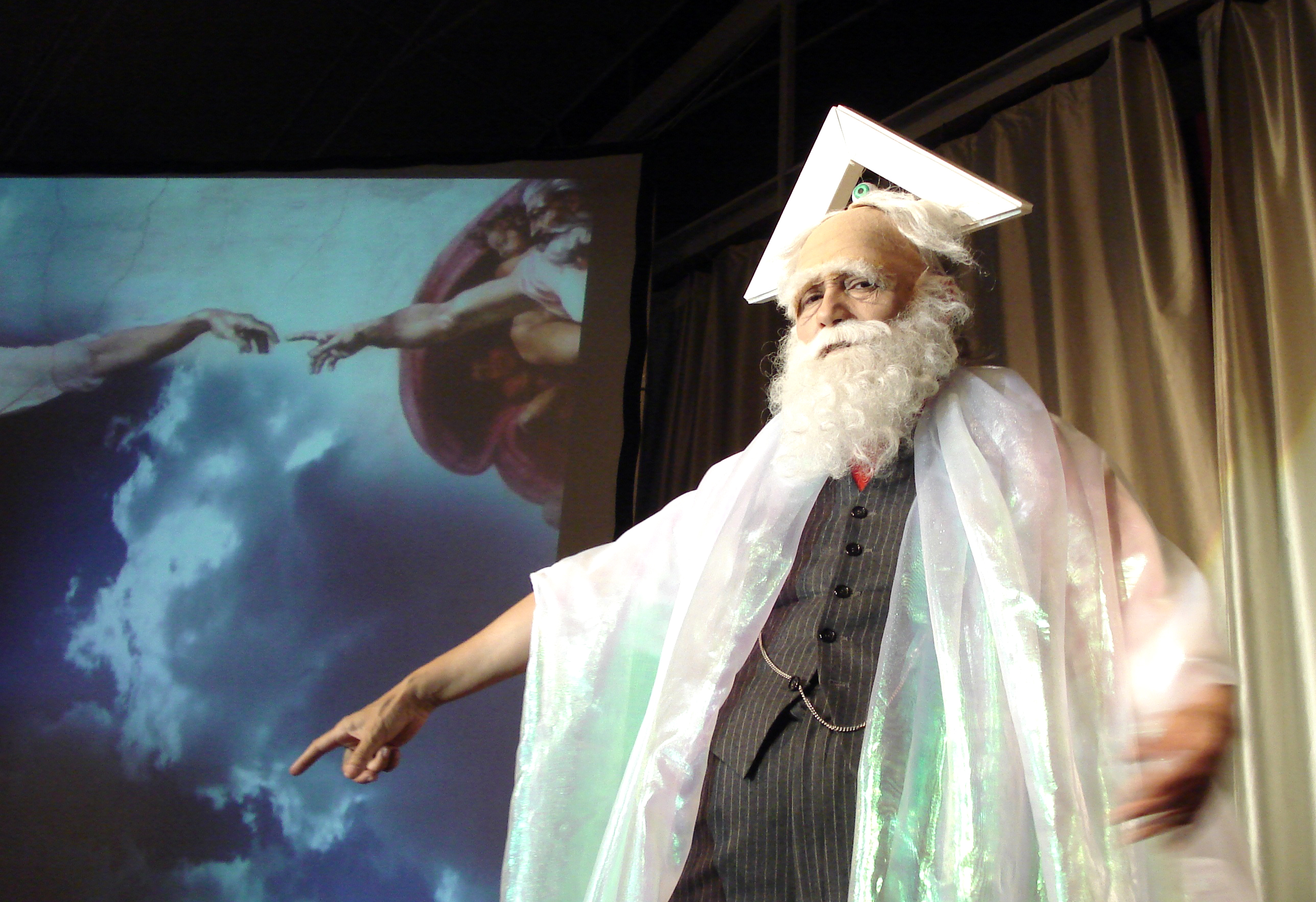Revolutionary theater

By Lenika Cruz
Oct. 7, 2011 12:12 a.m.
Together, science and religion have endured a long, messy history. So, if God and Charles Darwin were to sit down and chat, the exchange might be understandably sour. Tonight, one woman will bring both figures to life in hopes of casting a harsh yet humorous light on what such a hypothetical talk might yield. With the help of some clever costume and makeup, that is.
This evening, renowned Mexican performance artist and activist Jesusa Rodriguez will present her solo show “Dialogos Entre Darwin Y Dios” (“Dialogues Between Darwin and God”) in Macgowan Hall as part of “Global Flashpoints,” a weeklong series of events on transnational performance and politics.
In the show, Rodriguez plays the roles of both Darwin and God. Their discussion ultimately shows how in Mexico, as in other parts of the world, corrupt politicians are reversing the direction of evolution (renamed “involution”) and taking humanity backward. The work also satirizes the close ties of the Mexican government and the Catholic Church.
Rodriguez was invited to perform at UCLA by “Global Flashpoints” curator Sue-Ellen Case, a professor and chair of critical studies in the theater department. Case said she saw Rodriguez perform “Dialogos” in Chiapas, Mexico and thought it was a hilarious and brilliant analysis of the authorities of science and God.
While “Dialogos” will be performed in Spanish, translated English supertitles will be projected above the stage. Case said because the show is full of puns and plays on words, it was tricky to translate. While some cultural references may be lost in translation, Rodriguez uses nonverbal language to close this gap, said Chantal Rodriguez, adjunct professor of theater at CalArts and programming director at Los Angeles Theater Center.
“Even when you miss some elements of the language, or cultural context, you’re able to read them through her physicality,” Chantal Rodriguez said. “She finds other ways to heighten her performance to make up for the language barrier. … It’ll be definitely accessible to people who don’t speak Spanish.”
Jesusa Rodriguez works across a variety of genres and aesthetics, including sketch comedy, Mexican traveling theater, protest theater, opera and Greek tragedy. Case said she is also well known for her cabaret-style performances, even innovating a new genre called “mass cabaret,” which is performed on a larger scale in public.
Cabaret, according to Case, is a style more likely to be seen in a club setting than in what most think of as “proper” theater. Often cabaret performances are more casual and directed at the audience, unlike traditional plays where actors perform behind a fourth wall.
“Part of (the point of cabaret) is about being a kind of poor theater, making things simple and cheap. Instead of these big things like science and God, it shows a simple, poor, funny world,” Case said. “And (Jesusa Rodriguez) does it in drag.”
According to Gaston Alzate, associate professor of theater and literature at CSU Los Angeles, having a woman take on the roles of both God and Darwin is not only humorous, but also a way of using irony to broach gender issues.
Alzate said that while Jesusa Rodriguez is politically intense, an initially disagreeing audience can often find her jokes so funny that, after the show, they find themselves convinced by her words.
“Her strategy is to seduce the audience with humor,” Alzate said.
According to Chantal Rodriguez, Jesusa Rodriguez has been met with adoration and hostility alike, with the latter generally coming from the part of society she is critiquing.
Chantal Rodriguez added that Jesusa Rodriguez’s artistic and political work are largely one and the same.
“She’s known as one of the most important women in Mexico,” Chantal Rodriguez said. “She’s doing some really progressive work that speaks to the politically conscious mind. Watching how artists from other countries deal with political issues can inspire us to take advantage of the freedom of expression we have here (in the United States).”


